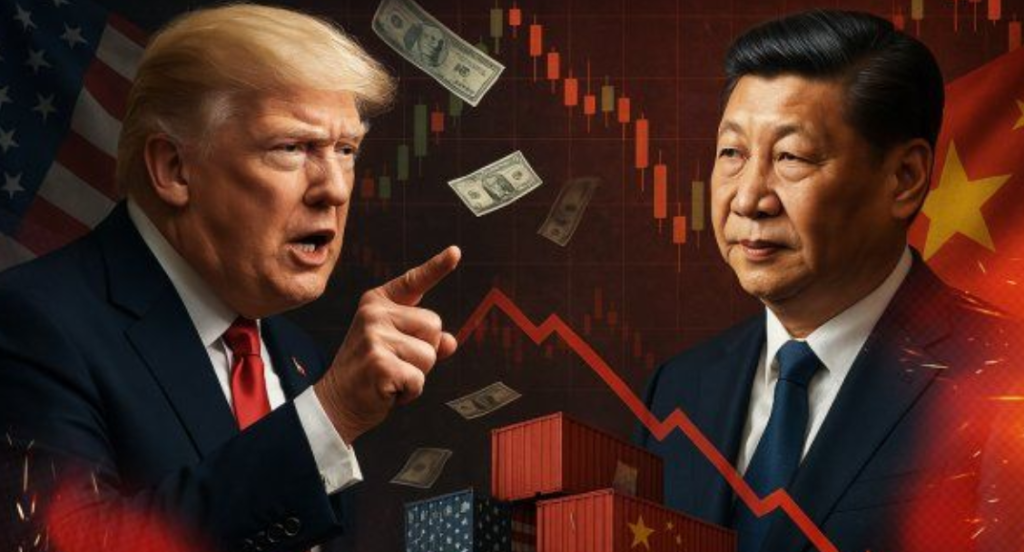China Rejects U.S. Call to Sanction Buyers of Russian Oil
he United States is preparing to push G7 allies to impose tariffs of up to 100% on China and India over their purchases of Russian oil.

Quick overview
- China's Foreign Ministry warns that U.S. pressure tactics threaten global supply chain stability and insists dialogue is essential for resolving the Ukraine conflict.
- Beijing rejects U.S. demands for tariffs on Chinese products and sanctions on Russian oil buyers, labeling them as unilateral bullying and economic coercion.
- Foreign Ministry spokesperson Lin Jian emphasizes that coercive measures undermine international trade rules and that China will respond to protect its commercial interests.
- The U.S. is seeking G7 support to impose tariffs on China and India over Russian oil purchases and to create a legal mechanism for seizing frozen Russian assets.
In the latest dispute between the two powers, China’s Foreign Ministry warned that U.S. pressure tactics threaten the stability of global supply chains and reiterated that dialogue remains the only viable path to resolving the war in Ukraine.

Beijing strongly rejected Washington’s latest demands that its partners impose tariffs on Chinese products and sanctions on buyers of Russian oil. “This is a typical act of unilateral bullying and economic coercion,” the ministry said, sharply raising its tone against what it views as a hostile policy.
Foreign Ministry spokesperson Lin Jian stressed that Washington’s maneuver “seriously undermines international trade rules and threatens the security and stability of global industrial and supply chains.” He added that China reserves the right to respond as it sees fit in order to safeguard its commercial interests. The remarks came during a press conference held Monday.
Lin directly addressed comments made by U.S. Treasury Secretary Scott Bessent, who recently urged NATO and G7 countries to take action against those maintaining energy trade with Russia—including China—arguing that such measures were the only way to end the war in Ukraine.
Rejecting this position, Lin insisted that coercive measures and economic pressure are not the solution, emphasizing instead that dialogue and negotiation are the proper course. His statements coincided with ongoing U.S.-China trade discussions in Madrid, adding a diplomatic layer to the rising tensions.
Washington Seeks G7 Backing to Pressure Putin
The United States is preparing to push G7 allies to impose tariffs of up to 100% on China and India over their purchases of Russian oil, in an effort to tighten pressure on President Vladimir Putin and force an end to the war.
Washington will also call on G7 members to create a legal mechanism allowing the seizure of frozen Russian sovereign assets. The proposal envisions confiscating or deploying the principal of these funds to finance Ukraine’s defense. Most of Russia’s immobilized assets—worth an estimated $300 billion—are currently held in Europe.
- Check out our free forex signals
- Follow the top economic events on FX Leaders economic calendar
- Trade better, discover more Forex Trading Strategies
- Open a FREE Trading Account
- Read our latest reviews on: Avatrade, Exness, HFM and XM